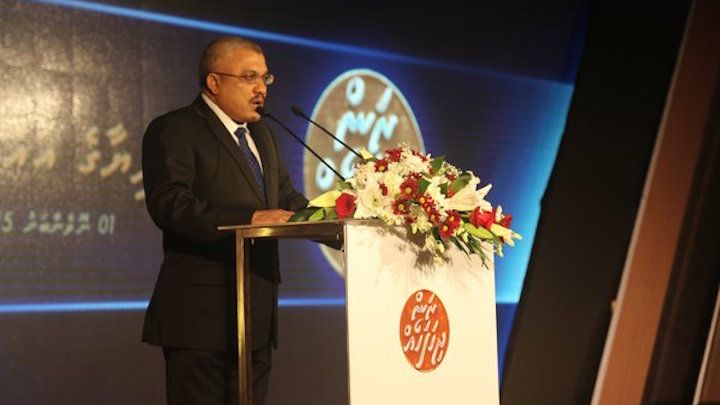Banks will lower interest rates, says finance minister
Commercial banks in the Maldives have agreed to lower interest rates on loans after the central bank slashed interest rates for the sale of treasury bills (T-bills) with effect from October 28, Finance Minister Abdulla Jihad has said.

02 Nov 2015, 09:00
Commercial banks in the Maldives have agreed to lower interest rates on loans after the central bank slashed interest rates for the sale of treasury bills (T-bills) with effect from October 28, Finance Minister Abdulla Jihad has said.
Speaking at a ceremony held last night to unveil new banknotes, Jihad said one of the reasons for halving interest rates on T-bills was to facilitate lending from banks to the public at lower interest rates.
“We talked to banks before we lowered the rate and got their endorsement. God willing, interest rates on bank loans will be very much lower in the near future,” he said.
Jihad noted that T-bill interest rates have been lowered by “about 50 percent”. Cheaper loans from commercial banks will benefit the public and private sector, he said.
Become a member
Get full access to our archive and personalise your experience.
Already a member?
Discussion
No comments yet. Be the first to share your thoughts!
No comments yet. Be the first to join the conversation!
Join the Conversation
Sign in to share your thoughts under an alias and take part in the discussion. Independent journalism thrives on open, respectful debate — your voice matters.




